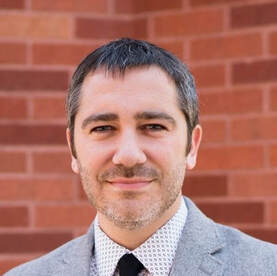Journal Articles/ Conference Proposals
- Sources of Evolution of University Students’ Views on Mathematical Creativity
- Teaching Math Versus Teaching Students
- A Quantitative Analysis of Six Aspects of Student Identity and Creativity-Fostering Instruction
Proceedings of the 14th International Congress on Mathematical Education
These three articles were submitted and accepted in the 14th ICME. Each are different aspects of our large NSF grant on Creativity in Calculus. Drs. Cilli-Turner, Tang and I look into evolutions of students' definitions of mathematical creativity and also how an instructor that participated in our grant changed her beliefs on teaching through a focus on creativity. Drs. Regier, El Turkey, and I reported on the construction of our survey to capture creativity-fostering mathematics instruction.
|
|
| ||||||||||||||||||
- Shifting Pedagogical Beliefs into Action Through Teaching for Mathematical Creativity
- Tasks to Foster Mathematical Creativity in Calculus I
- Undergraduate Learning Assistants and Mathematical Discourse in an Active-Learning Precalculus Setting
Proceedings of the 23rd Annual Conference on Research in Undergraduate Mathematics Education
These three articles were submitted and accepted in the 23rd National RUME Conference. We reported on how an instructor that participated in our grant changed her beliefs on teaching through a focus on creativity and creativity-based tasks to foster creativity in Calculus I. Also, Kaki Simmons, Candace Andrews, Drs. Moore-Russo and Kornelson, and I proposed how using levels of discourse could help understand what undergraduate learning assistants engage with students.
|
|
| ||||||||||||||||||
How Teaching to Foster Mathematical Creativity May Impact Self-efficacy for Proving
Journal of Mathematical Behavior
In this paper, Dr. Paul Regier and I investigate the five principles for maximizing creativity as defined by Sriraman (2005) and how they can influence self-efficacy for proving. We used both quantitative and qualitative methods to examine both self-efficacy itself and the four sources of self-efficacy as defined by Bandura (1997). We found that students reported that instructors asked for their ideas, but if not coupled with them sharing ideas through group work, it may have differing effects on students.
| Self-efficacy and Creativity | |
| File Size: | 1353 kb |
| File Type: | |
| moore-russoprimus2020.pdf | |
| File Size: | 255 kb |
| File Type: | |
| cilliturnerpmena2020.pdf | |
| File Size: | 137 kb |
| File Type: | |
| karakokpmena2020.pdf | |
| File Size: | 279 kb |
| File Type: | |
Invited Book Chapters
Researching in Undergraduate Mathematics Education: Possible Directions for both Students and Faculty
A Project-Based Guide to Undergraduate Research in Mathematics
This book chapter goes through possible ways of conducting or mentoring undergraduate research in mathematics education. In it, I also supply a common template for writing in undergraduate mathematics education and pose open "problems" to research more.
| Undergrad Research in RUME Book Chapter | |
| File Size: | 110 kb |
| File Type: | |
